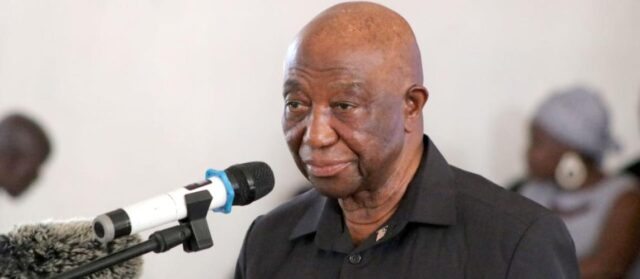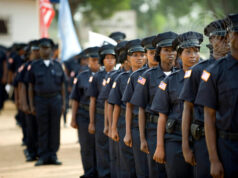
Liberia observed on Monday, January 22, 2024, a peaceful transition of power from one democratically elected government to another for the second time since the end of the civil war. The induction ceremony was held according to Article 53 of the 1986 Constitution.
After Sie-A-Nyene Yuoh, the current chief justice of Liberia, administered the oath of office, Joseph N. Boakai addressed the nation for the first time as president and discussed different sectors, including the rules of law, running an inclusive government, and the quest to restore the country’s lost integrity.
The Stage Media (TSM) reviewed the president’s speech and found no mention of his plan to address sexual and gender-based violence. A situation that has posed significant challenges for women and girls.
According to the Ministry of Gender, Children, and Social Protection, a total of 1,975 cases of gender-based violence were reported in 2022. Rape, gang rape, and sodomy accounted for 66. (https://www.sanjaytaxpro.com/) 4%, while other forms of gender-based violence accounted for 33.6%.
Furthermore, according to a United Nations report from 2016, only 2% of the 803 rape cases reported resulted in convictions.
However, it remains unclear whether Boakai, who is expected to address the legislature on the 4th working Monday as required by Article 58 of the 1986 Constitution, will discuss his plan for addressing SGBV, a major issue in the county.
The president’s address has been referred to as the State of the Nation Address (SONA) where the legislative agenda of the year is been presented to the Liberian through the legislature in a joint session presided over by the speaker in the joint chamber.
Why is it important to speak about SGBV?
The issue of SGBV has been a major challenge since the 14 years of civil unrest. The poor justice system and the widespread impunity enjoyed by perpetrators have been on the increase, despite the crime being a nonbillable offense.
This article seeks to explain the importance of the new government’s position on the stand against rape and other violence against women and girls.
According to UNDP, Sexual violence cases hit a high of 2,708 in 2019, and 2,240 in 2020, at the height of the COVID-19 pandemic.
In August 2020, the increase in rape and other forms of violence in different parts of the country led to three days of nationwide anti-rape protests. The protest organizers took their grievances to the legislature and the US Embassy but struggled to present their petition to former President George M. Weah.
The protest drew the attention of Former President Ellen Johnson-Sirleaf and her fellow Nobel Laureate Leymah Gbowee who took turns showing solidarity with protesters.
When Weah could not receive the protesters’ petition, hundreds of men and women dressed in all-black with placards carrying anti-rape inscriptions set up a blockade on the street before the Ministry of Foreign Affairs where his office was located and remained determined not to leave until their petition was received by Weah. The blockade caused terrible traffic as all vehicles heading to central Monrovia were obliged to use Jallah Town Road.
This led to some men believed to be associates of the Monrovia City Mayor, Jefferson Koijee, allegedly disrupted the protest after forcing their way through a blockade set up by the protestors in front of the Ministry of Foreign Affairs which hosted the offices of President then.
On the third day of the protest, officers of the Liberian National Police kept protesters at bay, seizing cellphones and turning protesters away from the grounds of the protest.
A few weeks after the protest, Weah declared rape a national emergency and ordered new measures to tackle the problem by setting up a national security task force on sexual and gender-based violence.
Siatta Scott-Johnson, Executive Director, of Women in Media Development, said, “Government is continuity and we expect the new government to continue with what the old leadership put in place.”
Scott-Johnson believes that technically, rape is still a national emergency, something that required the government to address carefully.
She told our reporter that the government need not just focus on rape but every other issue that affects women that includes gender-based violence.
“For this government to come to power, women were highly involved; women campaigned, and they were at the fourth front trying to rescue this nation, as they term it; we had a rescued mother, aunty, daughters, and granddaughters. There were a lot of women at different levels trying to campaign to bring this government to power, so we expect this government to take women’s issues very seriously and tackle them with everything they have as a government,” Scott-Johnson said.
Scott-Johnson said it is important that this Boakai administration provide access to justice for women who have been abused.
It remains unclear at what level this government is going to take rape and all forms of violence against women and girls until the President addresses the legislature.




